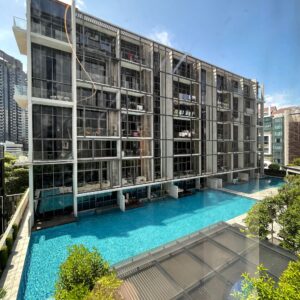Vigilance, a quiet yet powerful force, is at the heart of Singapore’s latest crackdown on money laundering in the real estate sector. In a striking move, two property agents have been fined for failing to conduct proper checks in a staggering S$3 billion money laundering case. These agents slipped up by not screening clients against anti-terrorism or UN sanctions lists, and they neglected to assess or document risks of money laundering and terrorism financing in transactions. It’s a reminder that even in a fast-paced industry, cutting corners can come at a steep cost—currently up to S$5,000 per breach for individuals, though harsher penalties are on the horizon.
Vigilance is key in Singapore’s crackdown on money laundering, as two agents face fines for inadequate checks in a S$3 billion case.
This case, spotlighting agent Tiew Chin Nee in January 2022, reveals just how critical diligence is. Tiew facilitated an industrial property purchase and rental for a client tied to money laundering, yet failed to screen them against designated lists or evaluate risks in the rental deal. Documentation? Incomplete. It’s a classic case of “should’ve, could’ve, would’ve,” but in a sector as high-risk as real estate, such oversights are no laughing matter. Singapore’s openness as a financial hub makes it a magnet for illicit funds, and property deals, with their hefty sums and tangled ownership webs, are prime targets for laundering. Additionally, the Council for Estate Agencies (CEA) is actively investigating other agents involved in this case to ensure accountability CEA investigating agents. Real estate’s vulnerability to exploitation underscores the need for agents to implement rigorous anti-money laundering measures to protect the market’s integrity rigorous AML measures. Recent enforcement actions have resulted in prohibition orders for 105 properties valued at approximately S$831 million, highlighting the substantial scale of the ongoing investigation.
Thankfully, the government isn’t sitting idle. The new Anti-Money Laundering and Other Matters Act 2025, passed on April 8, 2025, amends existing laws to ramp up penalties and widen regulatory reach, aligning with global standards set by the Financial Action Task Force (FATF). Maximum fines for some offences will jump to S$50,000, and agencies could face penalties up to S$200,000 per breach. It’s a clear message: play by the rules or pay the price.
Singapore’s commitment to fighting dirty money shines through these updates. Property agents, now more than ever, must act as gatekeepers, conducting thorough checks on clients and transactions. With the real estate sector under the spotlight, and regulators like the CEA and URA spreading the word on new rules, the hope is to shield the industry from misuse. After all, in a game of high stakes, vigilance isn’t just powerful—it’s essential.





